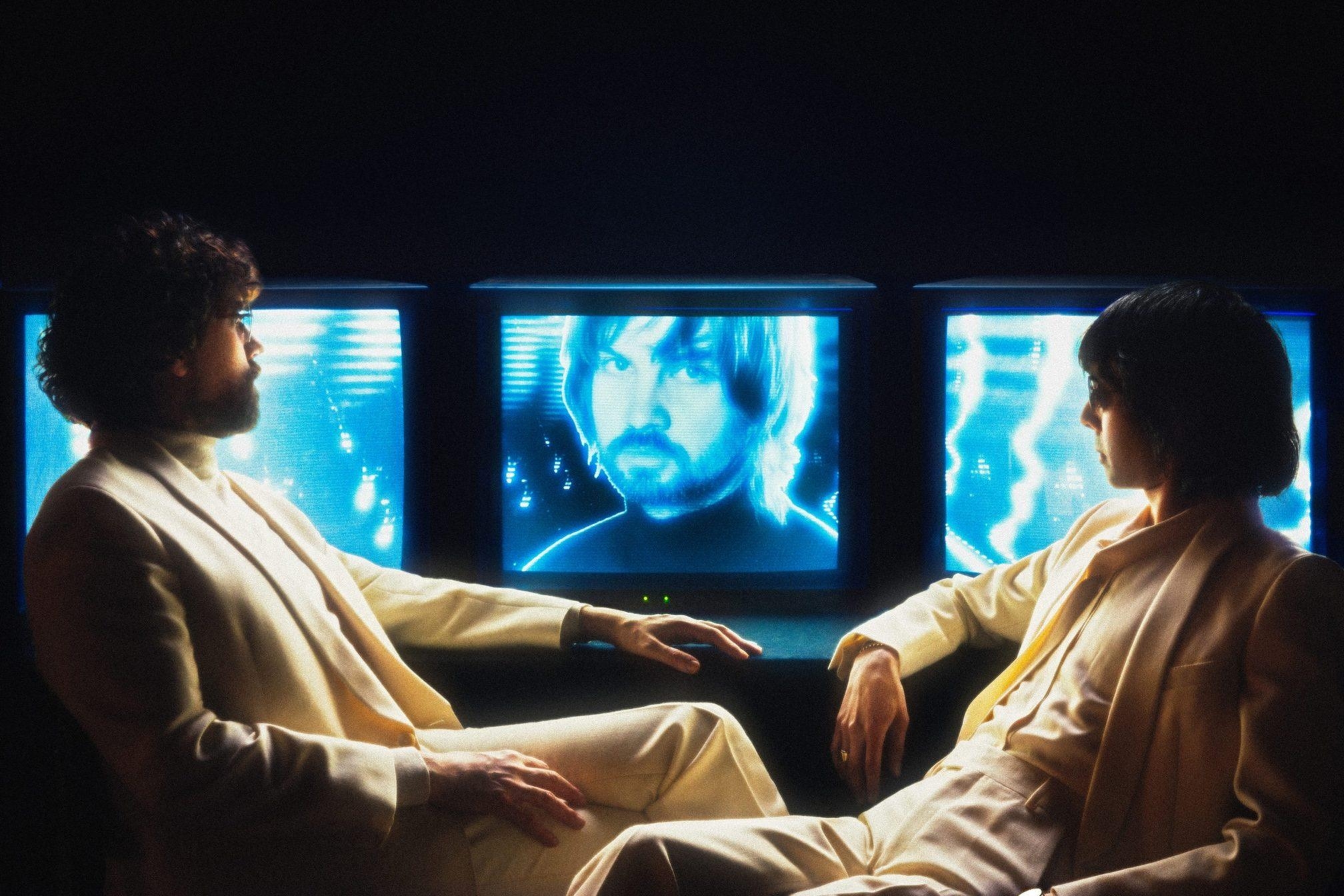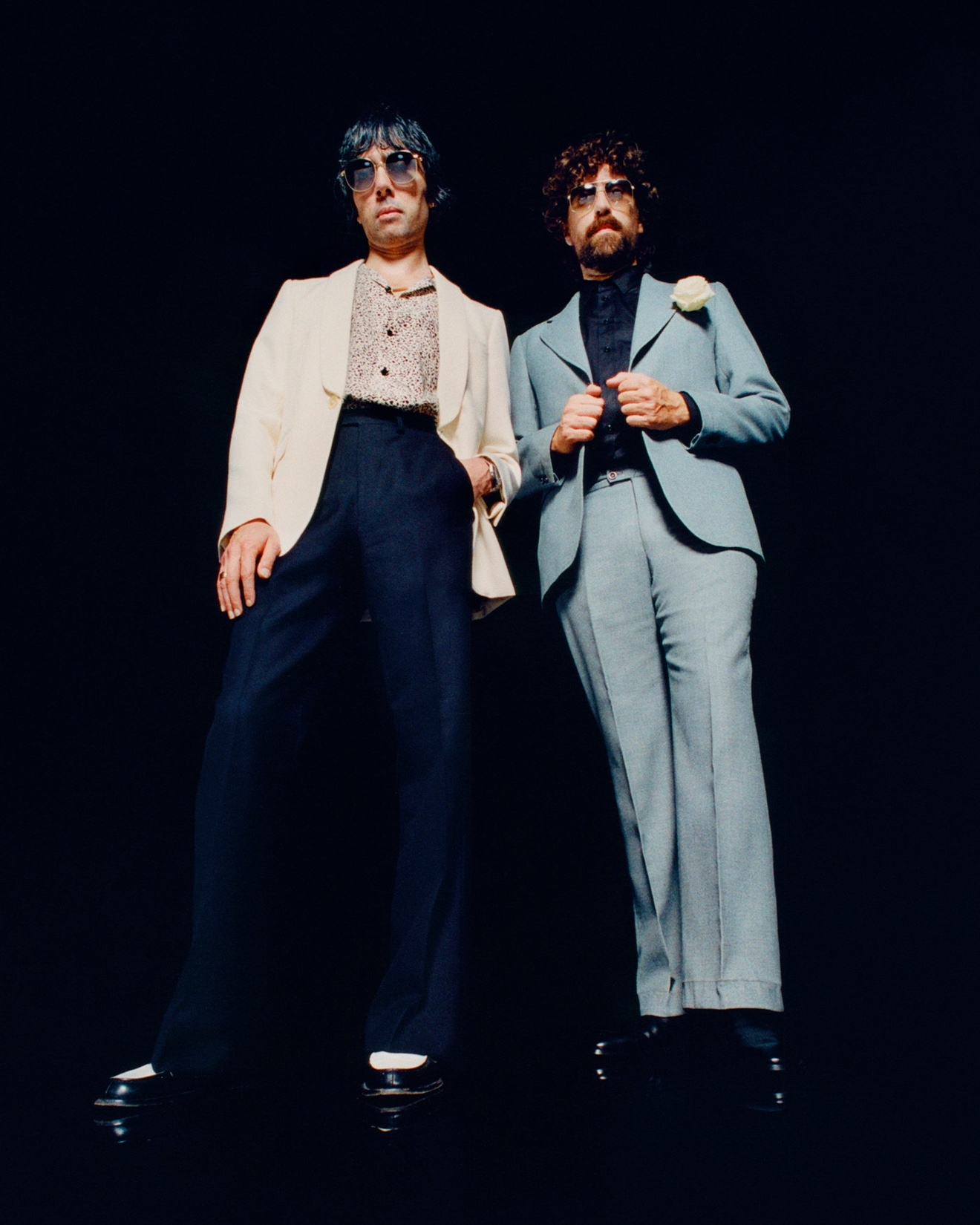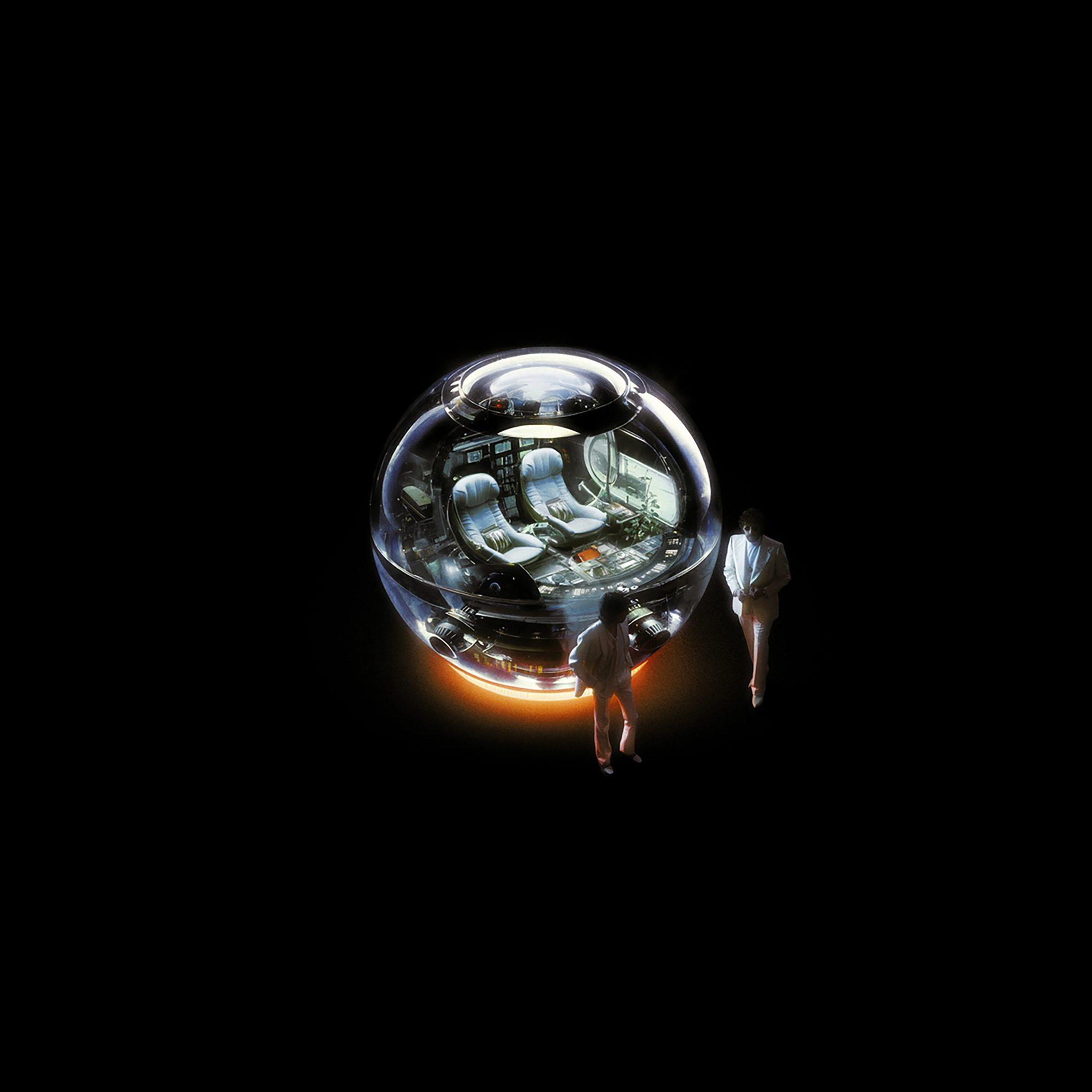 Features
Features
Welcome to Hyperdrama: Justice’s cinematic venture into a brand new world
The world around Justice may have changed but dance music’s unshakeable stars have the same nonconforming approach as when they started
The rough definition of “Hyperdrama” is when a performance has split narratives with scenes playing simultaneously. With so much going on, audiences have to experience it multiple times to fully process what has happened. Justice’s latest album embodies this concept, though it’s not a new idea to Xavier De Rosnay and Gaspard Auge — they’ve been splicing together sounds, blurring the lines between genres, and switching sonic identities for years.
Ed Banger’s golden duo are back and bolder than ever, and although the world around them has changed, Justice still feel like an act that exist in their own lane. It’s the longest wait between studio albums that Justice have subjected us to and a lot can happen in that time. But regardless of musical trends, social media advancements, and the general chaos of the outside world, Justice is still about two musical minds joining forces and doing their thing. The main sentiment they express seems to be one of ‘deja vu’, that they’ve been here before and while the world is different, their approach isn’t.
“It’s a strange time because, although there was eight years between ‘Woman’ and ‘Hyperdrama’, and because we’ve been working on things the whole time, we don’t really feel like we’ve not been here,” says Xavier De Rosnay as the pair sit down in Mixmag HQ to discuss the album. “Whenever we make a new album, we always feel like we start again from zero and we’re rookies because everything changes between two records. The people and the way they listen to music have changed. Like always, when we’re back with a new album, we feel like we’re discovering a whole new world.”
During the period since ‘Woman’’s release in 2017, De Rosnay went off to work on projects with Juliette Armanet and Prudence, while Auge used the time to release his debut solo album ‘Escapades’.
“There’s always a bit more experience that you bring with you to the Justice project,” explains Auge when talking about their joint return. “It was really fun for me working on my solo record because it drove the way I entered the ‘Hyperdrama’ spaceship with a fresh perspective.”
And what a spaceship it is. Having always flirted with themes surrounding space and all things intergalactic, ‘Hyperdrama’ is their most cinematic to date. “We grew up in the ’80s so all these space adventures and themes are very close to our hearts,” explains De Rosnay. “Also LSD, fever dreams, and themes and emotions like euphoria and melancholy.”
If debut LP ‘Cross’ was the jagged, no holds barred entry into the Justice universe, then ‘Hyperdrama’ is the refined, polished and assured instalment that captures their maturity as artists. Grandiose, epic and sweeping, it’s a dance music album with the heart of 100 instruments running through it.

It’s over 15 years now since their era-defining debut album was released. The record not only catapulted the French duo into the limelight as figureheads of an electro-tinged, rock-infused era of dance music, but heralded the winds of change for more electronic music artists breaking through as main-stage headliners. In the same year as Daft Punk’s legendary 2006 show at Coachella, Justice were being tipped as the next in line. The success of ‘Cross’ the following year was unequivocal: the leaders of a new wave of electronic stars had arrived.
“To us ‘Cross’ is still a mystery and almost an anomaly,” reminisces De Rosnay. “It's a great example of approaching things, devoid of any knowledge or preconception about anything. We made this album, our first album and we had never produced, recorded or mixed an album before. We made it not knowing anything.
“In a lot of ways, this record [‘Cross’] doesn’t sound good. In pure sonics it doesn’t sound good. Any sound engineer will tell you that it sounds awful and at the same time it sounds great.”
By this point, anomalies are out of the question, everything the duo have released since that album has been clinical and well-received. Nothing showcases this upward trajectory better than the list of collaborators on ‘Hyperdrama’, with Justice’s ability to conjure the biggest names in the world with ease evident to see.
Tame Impala, Thundercat, Miguel and Connan Mockasin appear alongside newer acts like The Flints and Rimon, all contributing to the widest range of additional acts that any Justice album has put forward.
Read this next: Why did Daft Punk split up? Mixmag examines the clues
Talking about the acts included De Rosnay explains that “they all have their own profiles and the process was always driven by music and never because ‘oh this guy is famous, maybe we can do some cross-audience’ type of thing.”
The Tame Impala collab feels like the perfect marriage of both act’s sounds and the two tracks, majestic album opener ‘Neverender’ and ‘One Night/All Night’ are two of the LP’s disco-soaked, electronic highlights.
“The funny thing about Kevin Parker is that when we first had the very early batch of demos, we could tell he was more attracted to the tougher stuff, which makes sense as it’s further away from what he’s doing,” says Auge.
“We can’t talk on his behalf but we really felt that for him working with us, he was looking for opportunities to move away from doing what he knows how to do, and for us that’s also a good sign,” adds De Rosnay.
“If you take all of those people like Thundercat, Miguel, Connan, they are all people who really try to challenge their music. Thundercat for example has one foot in very difficult jazz music. If you go to his shows, it’s very challenging and at the same time he perfectly masters this soul, almost yacht rock type of music,” he continues.
“Kevin can do pop music, psychedelic rock, sometimes even dance music. So yeah they’re all people we feel are very curious and always up for challenging themselves to do something else. Miguel is the same, he’s been doing grunge, R&B, industrial rap, even singing lines from Rod Stewart on A$AP Rocky songs, so they are all very versatile, they are not one trick ponies and that’s very refreshing.”

The beauty of ‘Hyperdrama’ harks back to its original meaning, the amalgamation of sounds and styles that Justice have always fused. Electro, techno, disco, classical, rock. It’s all there and it’s ever present. The pair have previously stated that they love the idea of elements fighting against each other to take centre stage and this is something Gaspard explains when we chat about tracks from the new album.
“If you take ‘Incognito’, for example, you have this switch from one mood to another, from the human side of things then going to totally electronic programmed stuff. It’s something we’ve always liked to do, to blur the lines so people don’t know how it’s made, and sometimes we try to make the computer generated element as human and alive as possible and vice versa,” Auge says.
“‘One Night, All Night’, I still don’t know if I prefer the mid section that is disco and funk or the main part. And then why choose when we can put all of them together and build a narrative at the same time,” adds De Rosnay.
Read this next: The Guest List: Breakbot & Irfane unearth 10 tracks that serve as a 'Remedy'
There’s plenty of new elements to keep all corners of Justice’s fanbase happy. ‘Dear Alan’ is a disco/funk behemoth that oozes a sultry sophistication, ‘Mannequin Love’ follows a similarly glitzy and glamorous blueprint, with sparkling crescendos and sumptuous vocal hooks that wash over you with every roll.
‘Moonlight Rendez-Vous’ is a woozy ballad that slows things right down, delving you further into their space ballad before ‘Explorer’, featuring Connan Mockasin, offers up a robotic chug that has all the hallmark Justice synths and melodies we’ve come to expect. One of the most interesting songs on the album is ‘Muscle Memory’, a monstrous track that builds and builds and builds, and just when you think relief is on the way, it keeps on building.
It’s a quintessential Justice experience, one that’s been present since the beginning, a real exercise in how to create tension, with a title that suggests crafting something so tantalising before the drop is something that they’ve always been able to do, except this time, there isn’t the standard release.
It’s a really strong example of a track not conforming to what the listener thinks should happen, in fact it almost feels like commentary on today’s culture of big drops in dance music and how they’re seemingly what all audiences crave. “I mean it makes sense,” says De Rosnay when asked if the track was potentially a comment on the societal norms of current dancefloors. “But when we work on an album, we don’t take any of our surroundings into consideration. We never try to make a track for an album thinking ‘ok how would this sound in a club’ or ‘will it be good on the radio’ or ‘is it catchy or not, can we make it catchier’. We really honestly make things based on the feeling like ‘we’re here, what do we want to hear now’,” he states.

When asked about releasing an album in a new age of social media, bearing in mind TikTok didn’t exist when ‘Woman’ was released, De Rosnay expresses a similar reaction, one that hammers home the duo’s resistance to letting outside forces have any say on the music they make. “Even at the time of ‘Woman’ or ‘Audio, Video, Disco’ and even before that when it didn’t really exist, we’ve never really been into social media. For us it doesn't really change anything. TikTok didn’t exist at the time but it still doesn’t for us because we’re not there, we’re not consumers of that,” De Rosnay says.
“We’re total strangers in this culture, not saying that in a bad way at all, there’s no judgement on what it is because we don’t know, it just belongs to a different generation,” he adds.
This different generation are likely experiencing Justice for the first time via a live show that’s evolved and captivated audiences since that luminous cross appeared on the stage, surrounded by stacks of Marshall speakers. They’ve just come off the back of a highly-lauded Coachella run, where they debuted a new show and gave fans more of the album ahead of its release.
Having a long-standing live show is one thing, but growing it and changing it for every campaign is no mean feat, as De Rosnay explains: “It sounds absurd but we always have to learn how to play our own tracks, just after having finished making them. Take a track like ‘Generator’, we have to learn how to play the chords and the bass. It’s a very long process and actually just from a technical standpoint, I would say that it’s even more work than making the album.”
Justice may feel like they’re starting again from step one but their sound has never felt fuller. Years of tweaking their unbreakable formula has paid off as ‘Hyperdrama’ storms into focus like a box office blockbuster, one that demands your attention and doesn’t let it go. The difference here is, there’s an emotional core that resonates long after the last note of ‘The End’, featuring Thundercat, has played. A one trick pony this is not.
Four albums in and Gaspard Auge and Xavier De Rosnay are sounding fresher than ever. The Justice cinematic universe expands once more and we’re already ready for the next journey, even if it does mean the duo going all the way back to the beginning to craft it.
‘Hyperdrama’ is out now via Ed Banger Records / Because Music, get it here
Jeremy Abbott is Mixmag's former global brand and content editor, follow him on Twitter


